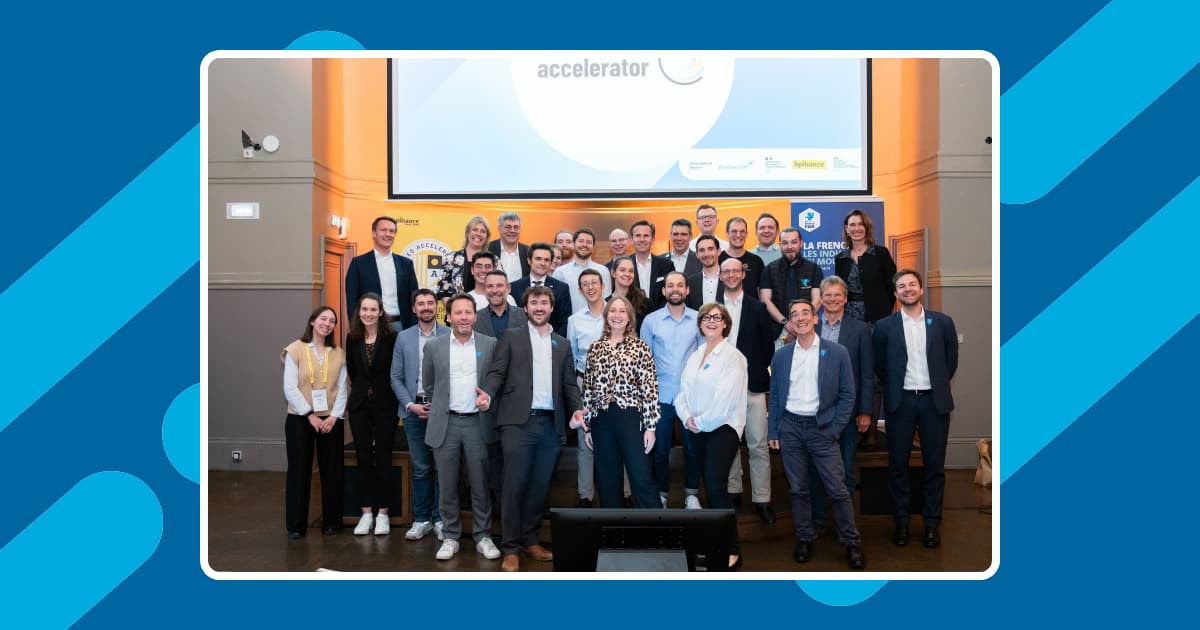« 73% of French people say that the development of trusted AI is an important, even essential, issue. »1
This is one of the results of the survey on the awareness and image of AI in France conducted in 2020 by IFOP and Think and do tank Impact AI. This survey highlights the deficiency of trust among citizens, which may be caused by the lack of AI projects framework, including those concerning urban AI2.
According to the CNIL, the smart-city is an urban area that aims to “improve the quality of life of city dwellers by making the city more adaptive and efficient, using new technologies that rely on an ecosystem of objects and services”3.
Since trust is a necessary condition for the development and adoption of AI in smart-cities4, it is important to understand the origin of this mistrust and what solutions could be brought.
The reasons for such a breakdown
AI is a technology that is misunderstood by the population. It is normal that its diffusion in the fields of the smart city applications increases the distrust of citizens. Indeed, according to the same IFOP survey, “More than two-thirds of French people say they are poorly informed about the possibilities offered by AI.”
This lack of understanding of AI can translate into skepticism and even sometimes to the point of distrust5. In this mass of fears, it is nevertheless possible to highlight several central subjects of concern for citizens.
First of all, the question of the security of private data. Indeed, citizens fear the emergence of certain technologies such as biometric surveillance that can be misused for authoritarian purposes6. Still citing the study on the awareness and image of AI in France, 24% of respondents justify their distrust “by the risk of malicious use of the technology” and for 20% of respondents “by a risk in terms of data protection”7.
In addition, several bias problems have been observed in different cities testing AI. Indeed, AI models the data it is given. If these data are biased, the AI will be too. Moreover, due to the sheer volume of data that a smart city processes, it can become difficult to identify the origin and correct these biases.
Among these, we can mention the risks of differences in the treatment of individuals. Indeed, an operating bias can lead to discrimination of a minority of citizens. The city of Oakland has experienced this with the implementation of the crime prediction tool “Predpol”8. This “predictive police” targeted black and Latino minorities more than the white majority because it was fed with possibly discriminatory data.
AI remains a tool, as such it is inherently neutral. The origin of the biases is in fact very often the responsibility of the human. These various facts then come to undermine the emerging confidence that citizens may have for artificial intelligence.
Recommendations for the adoption of AI in smart cities
The following points can be considered to strengthen public trust in the development of AI for smart-cities projects. These considerations are moreover already formally proposed and sometimes experimented with.
Creating a trusted third party
First, the governance of the data generated by smart cities should be assumed by the public authority. In this way, it is possible to control the use of data for the benefit of the population. In this configuration, private actors are not excluded from the data, but they are delegates of the public service and the city remains the guarantor of the use they make of the data.
This distribution of roles can be done in two different ways. Either by the public authority taking full responsibility for the data, or by the possibility for the latter to exercise a right of supervision over the management of the data.
In the first case, the authorities can install IT infrastructures directly in local communities that collect the data of citizens (for example, the creation of the Datacenter of the city of Paris9) while opening up access to private actors.
In the second case, it is possible to let private actors set up their facilities. But they must be constrained through data platforms allowing the exchange of data between private and public actors and citizens. These platforms centralize and secure the data within a single infrastructure for which the public actor remains the guarantor.
This is the case, for example, of the PRIDE platform applied in the Brittany and Pays de Loire regions10. This platform acts as a “trusted third party”11 for all actors.
Ensuring the transparency of processing methods
Secondly, in order to reinforce the trust of citizens, one way is to make the functioning of AI more transparent by showing all the reasons it identifies to make its decision. However, simple transparency is not enough; it is also necessary to be able to make the AI explainable, i.e. to put it in the context of its use and to provide an explanation that the receiver is able to understand.
Following this approach of openness, the cities of Amsterdam in the Netherlands and Helsinki in Finland have chosen to make public “an AI registry” to present the patterns used by AI to identify free parking spaces12.
Starting to build a normative framework
Third, it is possible to address the risks of bias in the solutions implemented for citizens and thus avoid the media accidents that have plagued the deployment of this technology. The case of PredPol mentioned above is a textbook example. This can be achieved by creating standards to prevent the technical biases of AI, such as those currently being drafted by ISO/IEC JTC 1/SC 4213 or by the ISO/IEC JTC 1/WG 1114 group. AI standardization will then reduce the risk of discrimination, exclusion or sampling bias.
Conclusion
Although the public is wary of the implementation of AI in cities, it will be necessary to get used to the use of this technology. Indeed, its market is growing rapidly and may reach 1100 billion euros in 202515. It is therefore important to produce an ethical framework for the use of AI in smart cities. This would involve legal, transparency and AI standardization steps.
After trust, the next step for public authorities is to develop the appropriation of AI by citizens. In this regard, if the smart city wants to be truly participative, it is necessary to involve citizens in the process of setting up AI, as in the case of crowdsourcing in Cairo16. Collaborative initiatives can thus be set up. These initiatives bring together public decision-makers and citizens to discuss social problems and agree on how to use AI.
Sources
- Observatoire de la Notoriété et de l’Image de l’Intelligence Artificielle en France – Edition 2020 ↩︎
- Pourquoi Google abandonne son projet de smart city à Toronto ↩︎
- Smart city | CNIL ↩︎
- “La confiance dans l’IA est une condition à son développement”, estime Guillaume Bodiou (Quantmetry) ↩︎
- Smart City et reconnaissance faciale : entre dangers et sécurité | Médicis Immobilier Neuf ↩︎
- Intelligence artificielle : l’UE va-t-elle autoriser la surveillance biométrique ? | TV5MONDE – Informations ↩︎
- Observatoire de la Notoriété et de l’Image de l’Intelligence Artificielle en France ↩︎
- Police prédictive, LegalTech : les algorithmes font-ils la loi ? ↩︎
- La Ville innove en se dotant de son propre Data Center ↩︎
- PRIDE | Smile ↩︎
- Smart Cities : l’enjeu de la gouvernance des données – SpinPart ↩︎
- Opinion | Quel contrat social pour l’intelligence artificielle ? | Les Echos ↩︎
- ISO/IEC JTC 1/SC 42 – Intelligence artificielle ↩︎
- IEC WG 11 Dashboard > Structure: Subcommittee(s) and/or Working Group(s), Membership, Officers, Liaisons ↩︎
- Alain Chagnaud Partner Secteur Public Roland Berger ↩︎
- Quelle place pour les initiatives citoyennes dans les smart cities ? ↩︎







